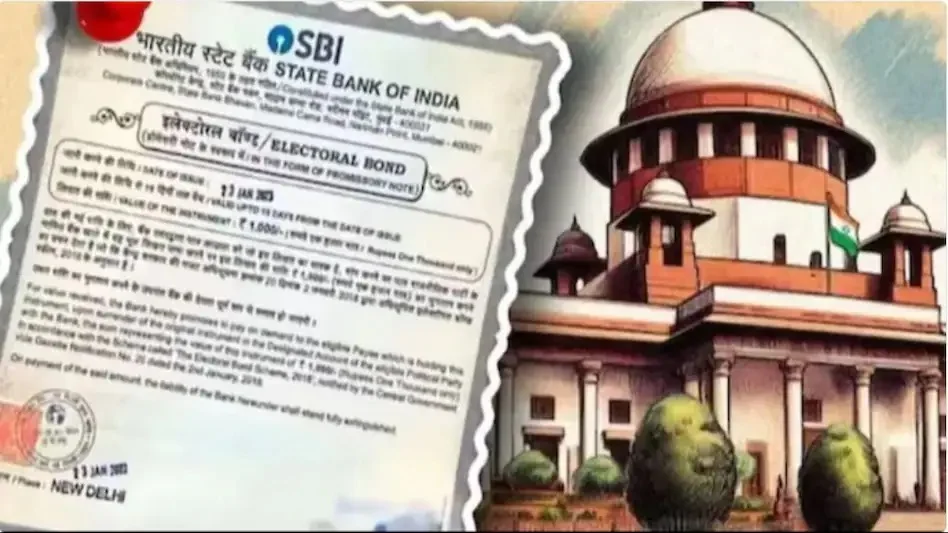In a stunning turn of events, the Supreme Court has slammed the State Bank of India (SBI) for wilful disobedience in the Electoral Bonds case, sending shockwaves through the financial sector and triggering a significant dip in SBI’s share price.
NEW DELHI- The apex court’s admonishment comes amidst a long-standing legal battle over the controversial electoral financing mechanism introduced by the government in 2018. Electoral Bonds, hailed by the ruling party as a tool for transparency in political funding, have faced relentless scrutiny from opposition parties and civil society groups, who argue that they facilitate anonymous donations, undermining the democratic process.
The recent developments unfolded as the Supreme Court, in a scathing rebuke, accused the SBI of “wilful disobedience” for not complying with its earlier order to extend the window for accepting electoral bonds till the conclusion of the hearing. The court’s warning of contempt has rattled the financial community, prompting a sharp decline in SBI’s share price, which saw a major dip of nearly 6% following the news.
The SBI’s defiance, as highlighted by the Supreme Court, underscores the contentious nature of the Electoral Bonds scheme, which has been marred by allegations of opacity and favoritism. Critics argue that the lack of transparency surrounding these bonds allows for undisclosed corporate donations to political parties, raising concerns about the influence of big money in politics.
The apex court’s intervention marks a critical juncture in the legal battle over electoral financing, with implications for the broader landscape of Indian democracy. As the judiciary asserts its role in ensuring accountability and transparency in political funding, the outcome of this case is poised to shape the future trajectory of electoral finance regulations in the country.
Reacting to the Supreme Court’s reprimand, legal experts have emphasized the significance of upholding the rule of law and institutional integrity in matters of public governance. They argue that the SBI’s non-compliance with the court’s directives not only undermines the authority of the judiciary but also raises questions about the bank’s accountability in upholding constitutional principles.
Moreover, the plunge in SBI’s share price reflects the apprehensions of investors and stakeholders regarding the bank’s legal liabilities and regulatory compliance. With the specter of contempt looming large, financial analysts warn of potential repercussions on SBI’s reputation and market standing, underscoring the interconnectedness of legal and financial domains in the modern business landscape.
In the wake of these developments, political commentators have highlighted the broader implications of the Electoral Bonds case on the democratic fabric of the nation. They argue that the court’s scrutiny of electoral financing mechanisms underscores the imperative of transparency and accountability in safeguarding the integrity of electoral processes.
As the legal battle over Electoral Bonds unfolds in the corridors of power and the judiciary, the outcome remains uncertain, with far-reaching ramifications for India’s democratic ethos. The Supreme Court’s admonishment of the SBI serves as a stark reminder of the enduring struggle to uphold democratic principles in the face of vested interests and institutional complacency.
The Electoral Bonds case emerges as a litmus test for the resilience of India’s democratic institutions, with the judiciary playing a pivotal role in upholding the sanctity of electoral processes. The ongoing legal saga underscores the imperative of transparency and accountability in political funding, reaffirming the foundational principles of democracy in the world’s largest democracy.

